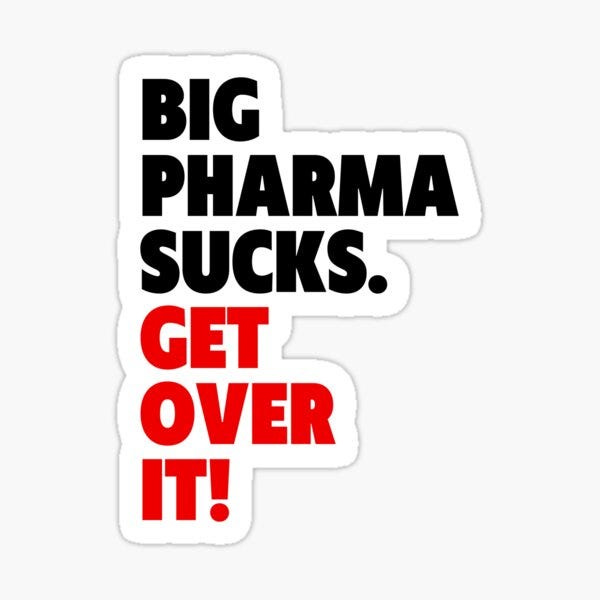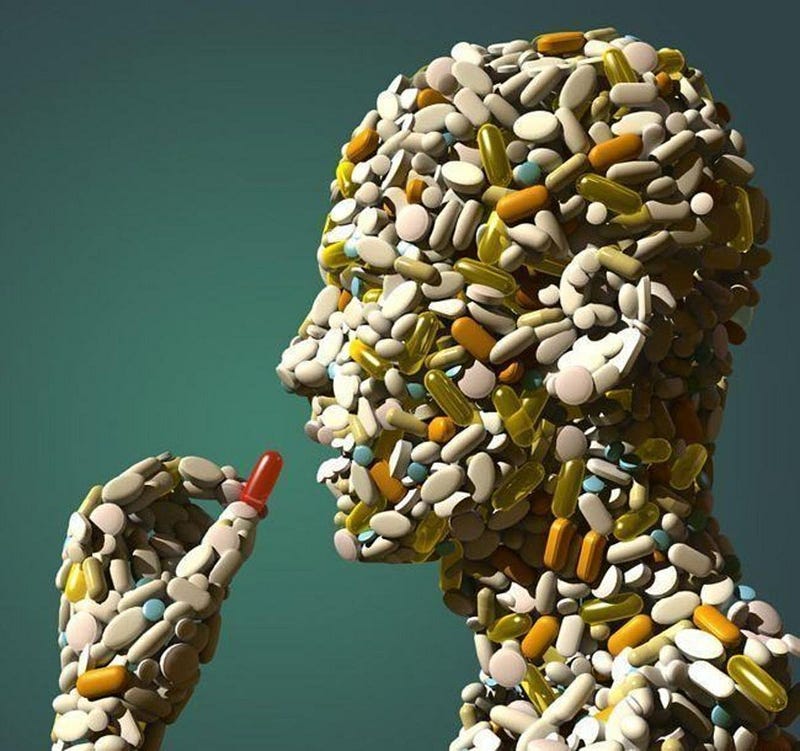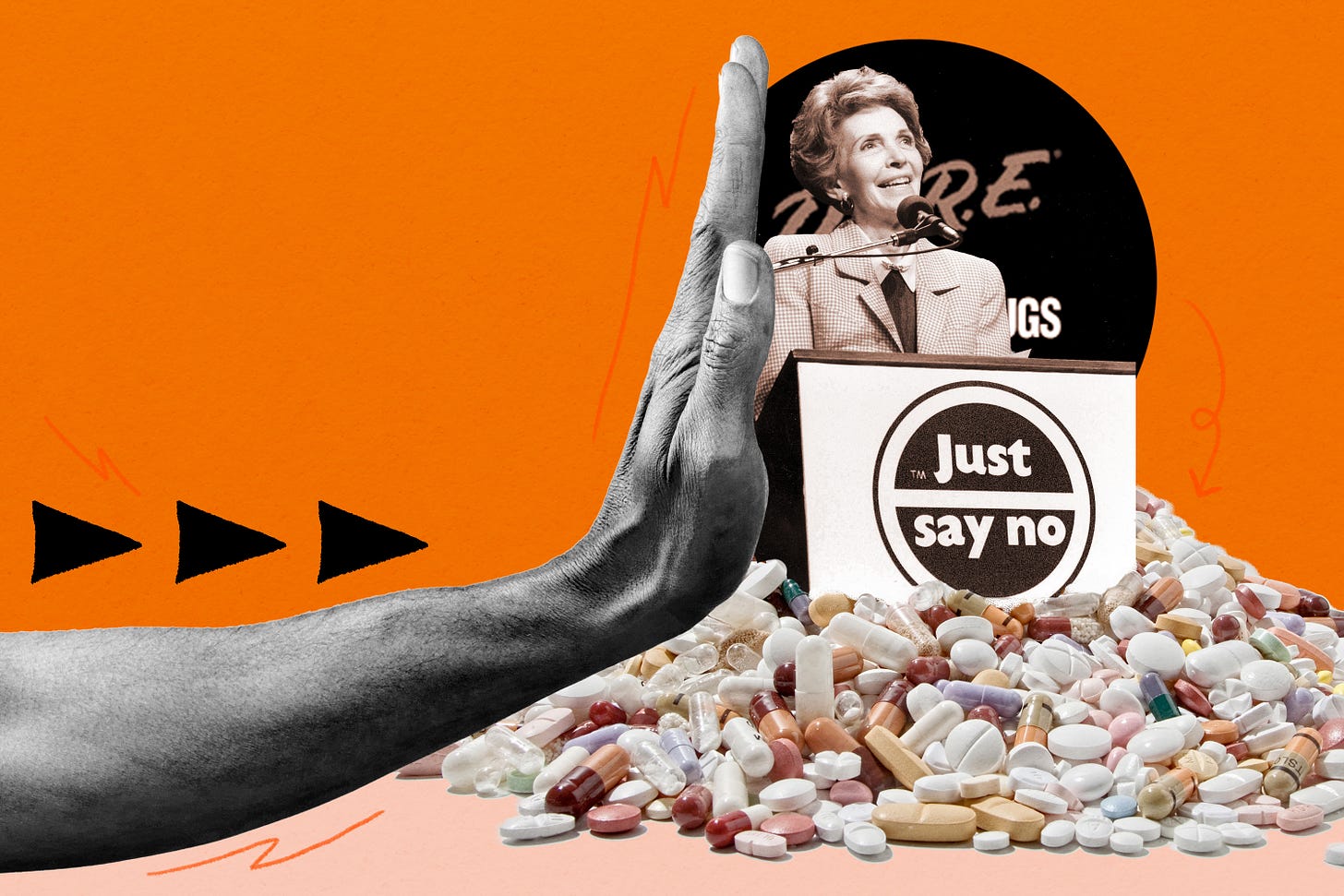Polypharmacy: Making Zombies of Special Needs Children
Special needs children are often over-drugged, as are their parents and grandparents.
Is this what you want?
The following was adapted from the post, Just Say No to Pharmaceutical Drugs.
The Slippery Slope to Polypharmacy
Polypharmacy is taking many drugs at the same time.
The Pharmaceutical industry thrives on polypharmacy, so to them, it’s a necessary condition to be managed, preferably with even more drugs.
Polypharmacy happens for a simple reason.
When a single drug is prescribed, it will often have side effects.
A second drug will be prescribed to deal with the side effects.
That will induce even more prescriptions.
Eventually, the cocktail of these drugs interacts and produces even more side effects, resulting in even more prescriptions.
A completely clean person like me can devolve into Polypharmacy in a matter of weeks.

Special Needs Polypharmacy
I am particularly close to the Special Needs community.
I have a 22-year-old son diagnosed with autism.
He is the only one I know who is not on a Polypharmacy regimen.
Special Needs people often don’t have the capacity to make decisions for themselves.
My son doesn’t.
Thus, they are subject to the whims of their caregivers, who often load them up with drugs.
For some, it’s a necessary measure to control wild and unpredictable behavior.
These are a small minority. And it doesn’t mean a polypharmacy regimen is necessary.
For many, drugs are a convenience. It prevents unruly behavior and makes life easier for everyone.
Unfortunately, once a drug is started, it’s rarely ever terminated—due to fear of what may happen.
My wife and I do give my son one drug on occasion, Propranolol 10mg. It’s a beta blocker that’s been around since the 1960s.
We’ve never observed any side effects.
We have observed an increase in eye contact and a decrease in excitability.
It seems to even him out.
We don’t provide it daily unless he has a meltdown, and then only for a few weeks when we stop.
It’s the same timing and cycling I occasionally use with over-the-counter antihistamines.
We don’t administer any drugs regularly, and certainly not for convenience's sake.
So where does convenience become a necessity?
I don’t have that answer. Only you do.
I posit it’s somewhere well short of polypharmacy, and it doesn’t result in lifelong drug use.
It saddens me to see typical adults on multiple drugs, but they at least have free will.
It deeply saddens me to see so many special needs patients drugged without their understanding or consent.

Drugs have their place
I am not completely against all Pharmaceutical Drugs.
As I documented in (Some) Schizophrenics are Enlightened, Minus Proper Body Anchoring, Schizophrenics often need drugs to remain safe.
However, the need for drugs and the applications that drugs are applied to is a chasm so vast that a trillion-dollar industry of leaches and murders exists there.
If I were convinced a particular drug was essential to my survival — a really tough sell — I would take it.
Although, I would explore every possible natural remedy first.
The mindset that must die
Western culture believes that all diseases have a physical cause, which they don’t. It’s the nasty extension of materialism.
Physical causes must have physical remedies.
Therefore, some drug is the fix or the cure for disease.
This is wrong, on many levels.
Perhaps we haven’t discovered the magic drug yet, but we have a panoply of existing drugs to address ailments both big and small.
According to this way of thinking, we are all born with drug deficiencies.
We lack sufficient caffeine, so we must consume coffee, soda, or various powders to correct this problem.
Apparently, countless years of evolution did not provide us with a body capable of sustaining itself without infusions of exotic chemicals.
Our natural immune system requires constant infusions of drugs to sustain its operation.
It’s a miracle we made it this far.
Thank goodness for pharmaceuticals, right?
I haven’t tried enough with my son, right?
How many of you are thinking that I should try out more drugs on my son?
Perhaps I haven’t found the cure or the one drug that will make him nearly normal.
This is the kind of thinking that leads to snake oil purchases, foolish and unnecessary interventions, and polypharmacy.
It assumes my son needs to be “cured” and that drugs offer that potential.
That’s wrong on both points.
Say No to Drugs — All of Them
I’ve never taken a prescription drug longer than a few weeks.
I’ve never taken over-the-counter drugs for more than a few months, and those were antihistamines.
I have taken illegal drugs for extended periods; at least they were illegal. Cannabis was my drug of choice.
I liked to smoke small amounts of Sativa leaf to “take the edge off.” I avoided Indicas when possible due to the mental blanking side effect.
I found that Sativa Cannabis was effective at getting me out of my head and into my heart.
I take no drugs today.
My 103-year-old grandfather
My grandfather lived to be 103 years old. The only medication he ever took was niacin for his high cholesterol. Niacin is a vitamin.
He only took that briefly because the flushing was an unwelcome side effect.
Also, it runs in the family, and the high levels do not result in artery buildup; at least, that’s what my Cardiac Computed Tomography (CT) Scan revealed to me.
In my opinion, my grandfather lived to be 103 and sustained mental clarity for nearly all of that time because he didn’t take Pharmaceutical Drugs.
Pharmacists Say No
One of my closest friends from High School is a pharmacist. So is his wife.
They occasionally take ibuprofen, but nothing else.
I’ve known other pharmacists who have told me the same thing.
The reason they give is that these drugs are very powerful, and drugs have many unwelcome side effects.
Unless they really, really needed them, they would never consider taking them.
Senior Citizens Say Yes
I recently spoke to an 82-year-old gentleman who told me that he is on about 15 different medications. He says he does what the doctor tells him.
Apparently, that means taking a multitude of prescription drugs.
Have you ever spent time talking with retired people?
What do most of their conversations revolve around?
Seniors discuss their ailments, the meds they are on, their difficulties with insurance, and their need for these drugs for their survival.
I’ve witnessed and participated in those conversations.
These talks are not uplifting.
Just Say No
When in doubt, just say no.
Pharmaceutical Drugs do more harm than good.
~~wink~~
Anatta








